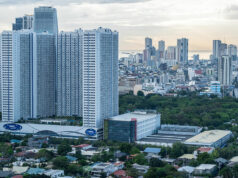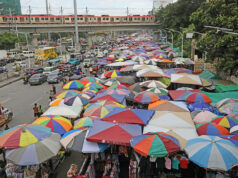THE Philippine Competition Commission (PCC) slapped Grab Philippines with new fines amounting to P16.15 million for overpricing and higher driver cancellations.
The new set of fines includes P14.15 million for pricing deviations, and P2 million for driver cancellations of 7.76% of rides, instead of the 5% ceiling.
In a statement on Wednesday, the competition watchdog said the P14.15-million fine will be refunded to customers who have availed of Grab services from May 11 to August 10, 2019.
The PCC order was released after an audit report submitted by Smith & Williamson, an independent entity tapped to monitor Grab’s compliance with voluntary commitments on price, service quality and non-exclusivity for a year which ended on Aug. 10, 2019.
Grab’s pricing and service quality commitments to PCC are conditions for clearance of the company’s acquisition of Uber Philippines last year. The PCC noted that Grab’s violations indicate an exercise of market power in the absence of a competitor of adequate scale.
“The ride-hailing market has seen profound changes in the past year as a result of Grab’s acquisition of Uber. With the commitments in place, PCC aims to maintain pre-transaction market conditions and will discipline any tendency to exercise monopolistic power with corresponding penalties,” PCC chairman Arsenio M. Balisacan said.
PCC last month fined the company P23.45 million, including a P5.05 million refund to customers, for breaching its pricing commitments.
Grab in a statement said that it will be refunding the P14.15 million penalty to customers through the GrabPay Wallet by February 10, 2020. The remaining P2 million penalty for driver cancellations will be paid to the PCC.
The company said it complies with the Land Transportation Franchising and Regulatory Board (LTFRB) fare matrix despite reduced supply of transport network vehicle services, growing commuter demand, and worsening traffic conditions.
“However, Grab Philippines respects the findings of the Philippine Competition Commission on its May 11-August 10, 2019 monitoring, after the antitrust body identified certain deviations from Grab’s voluntary commitments which is caused by the lack of TNVS supply to service the steadily growing commuter demands, coupled with the worsening traffic situation. TNVS is initially intended to augment the mass transportation system in the country, at the current rate, the TNVS is now carrying the heavy load of serving commuters which the current mass transport system is unable to accommodate,” the company said.
The PCC maintained that Grab’s pricing commitment is separate and independent from the LTFRB fare matrix.
“While LTFRB has imposed a fare matrix for all transport network vehicle services, the PCC binds Grab to its voluntary commitments, including keeping its fares within a range as if a competitor like Uber were present in the market. As such, PCC fines Grab for fares that deviated from its pricing commitments to the Commission, even if the same is not considered overcharging based on the fare matrix imposed by LTFRB,” the competition watchdog said.
PCC said that the fines will be paid by Grab, and will not be passed on to drivers or riders.
Grab may ask to be released from its commitments if a competitor takes on at least 20% market share, or two or more players take on a combined 30% market share.
“As the new monitoring year begins with the new system-wide average monitoring scheme, Grab is hopeful in fulfilling its commitments to the PCC, however, it highlights that as a platform, pricing will still be influenced by factors such as lack of supply, and the traffic situation,” the company said. — Jenina P. Ibañez



